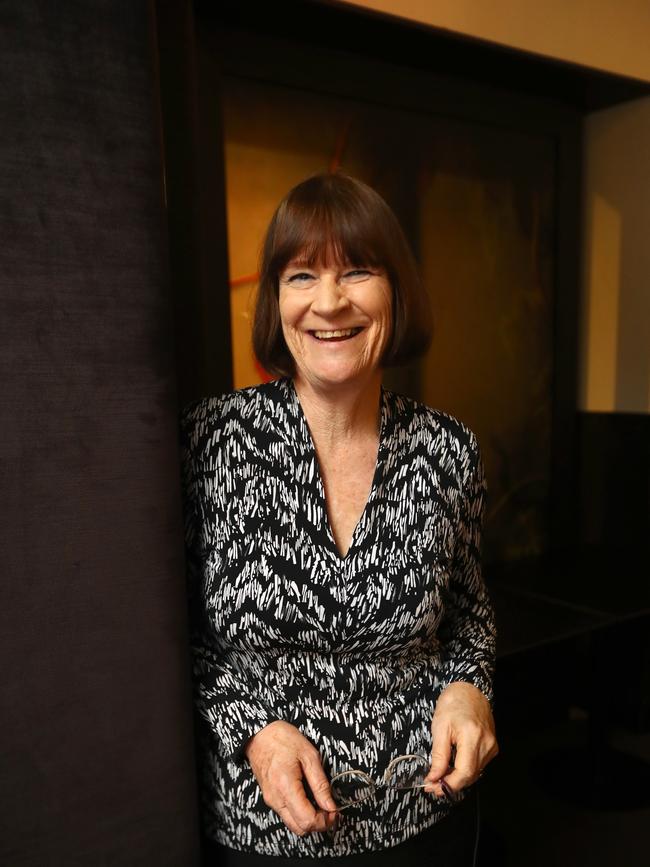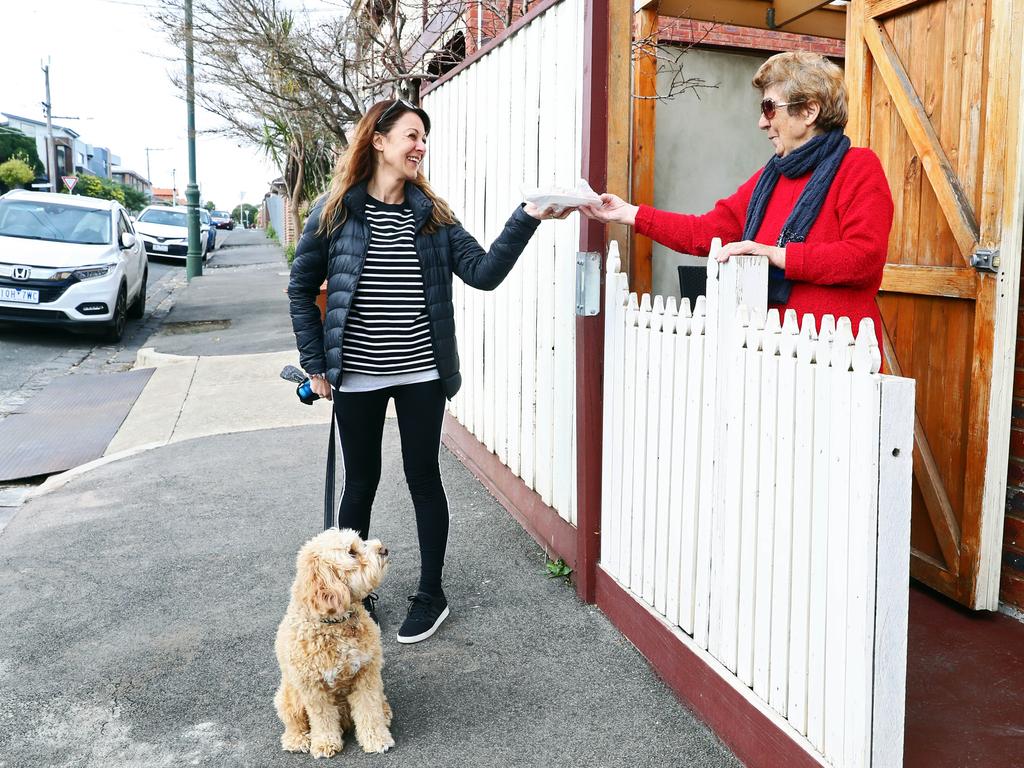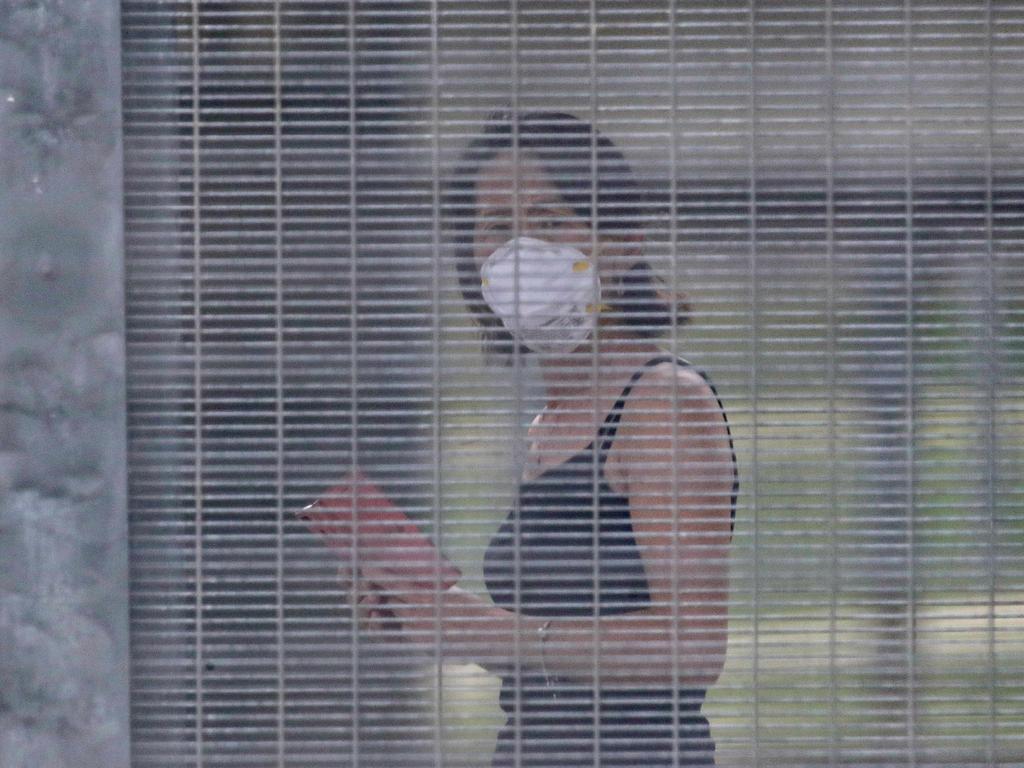Coronavirus: research finds parents feel less rushed during COVID-19
It was back to the 1950s for some women during a lockdown that saw them adding more unpaid work as they switched to remote working

Mothers working from home during COVID-19 are doing more unpaid domestic work but feel less “rushed” than they did when they had to front into the office, according to Melbourne University research.
But the reduced stress comes at a price with many women in a survey of almost 3000 people reporting the lockdown felt like a return to an earlier era.
“I feel like I am a 1950s housewife,” one told researchers from the school of social and political sciences.
Another said: “I suddenly find I’m living in decades gone by in terms of house and family care load, but also expected to continue to work.” Others reported: “I work downstairs in our living area where I supervise our kid, my husband works upstairs with no supervision duties” and “I’ve dropped everything to home school the kids and keep the home running – and of course quiet – while my husband’s job rolls on via laptop in a closed off room”.
It’s not all gloom on the home front however, with some women reporting their husbands now acknowledged the unpaid work they did and there was a fairer division of labour.
“I feel like the scales have tipped,” one woman wrote. “Now my husband is doing as much or more supervisory care than me. Yipeeeee!”
The researchers led by Professor Lyn Craig surveyed people between May 7 to June 4 in a bid

to investigate the gendered division of labour in paid and unpaid work before and during COVID-19, when hundreds of thousands of people switched to working from home.
In a forthcoming paper, Professor Craig writes that this change significantly blurred the lines between paid work, domestic labour and caring for others. “This dramatic shift opened the possibility that longstanding patterns in work-family and gender relations, central concerns of sociology, would be tested and disrupted during the pandemic,” she said.
The results were mixed: “For many, the crisis made it worse, and gender inequities proved resistant to the changes in temporal and spatial workplace constraints. But for some, there was welcome improvement in shares and time stress, and perhaps grounds for cautious optimism”.
In a separate analysis, Professor Craig and research fellow, Dr Brendan Churchill, said that before COVID, mothers spent about 54 per cent more time caring for children than did fathers but the gap dropped to 40 per cent during the lockdown. There was also a narrowing of the gender gap when it came to time pressures. Before COVID-19, 51 per cent of mothers said they often felt rushed compared with 40 per cent of men, but by May the percentages for both men and women had dropped to 24 per cent.
The researchers said that while men did more child care during COVID-19 not much changed in the amount of housework and household management by men, suggesting they preferred to increase time with children because it was more rewarding than washing dishes.
The reduced stress reflected the relaxation of work, school and commuting schedules.
“Normally time stress on working parents arises not only from how much they do, but also from when it must be done,” they said. “For many employed mothers, particularly, the morning and early evenings were narrow time windows at each end of their paid working day, into which time-critical unpaid work activities had to be concentrated. For example, the deadline-filled time crunch of the evening “family rush hour’’ involved leaving work, picking up children from school or daycare, cooking dinner, helping children with homework, bathing, feeding and readying them for bed”.
Those external pressures dropped during lockdown, suggesting time stress could remain lower if companies allowed more flexible work after the pandemic.
But while they are less stressed, mothers and fathers are unhappy about the extra unpaid work they are forced to do in the lockdown. Around 12 per cent of men thought they did more or much more than their fair share before COVID, but this doubled to 25 per cent in the lockdown; 60 per cent of women thought they did too much before COVID and this figure too went up to 62 per cent during the lockdown.








To join the conversation, please log in. Don't have an account? Register
Join the conversation, you are commenting as Logout